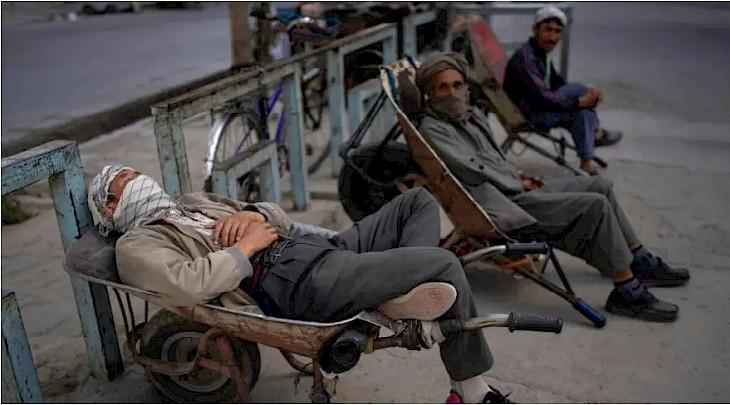A recent report from the United Nations Development Programme (UNDP) highlights that 90% of Afghan households are facing an economic shock in 2024 due to the ongoing humanitarian crisis, Khaama.com reports.
The report indicates that 65% of households have been directly impacted by this shock, with a 35% increase compared to 2023. The report warns that Afghanistan is sliding deeper into socio-economic crises, with widening inequalities, especially for women and rural areas.
The European Union’s delegation in Kabul also expressed concerns, noting that the restrictions imposed on women and girls between 2024 and 2026 could cause a loss of over $920 million to Afghanistan’s economy. These limitations continue to exacerbate the country’s economic and social challenges, further undermining progress in key sectors.
According to the UN report, 9 out of 10 Afghan households have lost their productive assets, income sources, livelihoods, and job opportunities. This widespread loss has led families to cut down on daily consumption and reduce expenditures, decreasing their resilience to future shocks and deepening their vulnerability.
In addition to these challenges, Afghanistan’s Gross Domestic Product (GDP) saw a modest growth of 2.7% from 2023 to 2024, marking the first positive growth since 2019. However, the report highlights that Afghanistan’s economy remains fragile, with a significant trade deficit of $6.7 billion in the first three quarters of 2024, up from $5.1 billion during the same period in 2023.
The UNDP also emphasizes that Afghanistan remains heavily reliant on imports and international aid, with 75% of the population facing food insecurity in 2024. This figure represents a 6% increase from 2023, with rural areas—home to 71% of the population—continuing to suffer from a lack of essential services, including healthcare, sanitation, and sustainable livelihoods.
As the situation in Afghanistan continues to worsen, the UNDP urges international actors to increase support to help mitigate the devastating impact of the ongoing crisis. The report also highlights the critical need for targeted assistance for women-headed households, rural communities, and internally displaced populations, who have been hit hardest by the economic downturn.
The report further stresses the importance of addressing gender disparities, with women continuing to face increasing poverty and social isolation due to the continued restrictions on education and employment opportunities. The future of Afghanistan’s economy and society depends on effective, inclusive policies and inclusive government and international cooperation to address these persistent challenges.
CentralasianLIGHT.org
May 9, 2025

